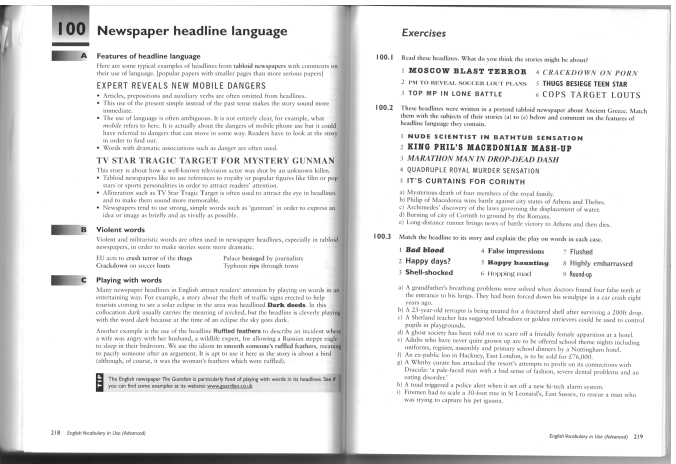Перевод тут.

I was thinking what one can say instead of ’you are trolling me’. You see, it’s just not original now; everybody whines about somebody trolling them. Also, using the verb ‘trolling’ without any synonyms just makes one sound simple-minded.
Which text (example 1 or 2) sounds wiser?
Example 1: That troll is trolling me. I am fed up with his trolling. He is not going to troll me anymore, because I am going to hit the report button and say that he is trolling me.
Example 2: That troll is taking the piss. I am fed up with him taking the mickey of me. He is not going to offend me anymore, because I am going to hit the report button and say he is trolling me.
What if I replaced them with some other words? What do I use instead of ‘troll’?
The first words which came to my mind were ‘you are mocking me’ and ‘you are taking the mickey out of me’. But, surely, the British know better. I asked my London friend Thomas Sharp for some help.

HELP FOR INTERNET SAVVY USERS
His reply was:
“We shouldn’t use the verb ‘mock’ because: “Mock is old fashioned”.
‘Taking the piss’ is what I would say. The full phrase is “don’t take the piss out of me” but this last part is usually left out”.
Talking about using the verb ‘troll’ Thomas said:
“Trolling is more appropriate in a removed sense i.e describing the general behaviour of others. We wouldn’t use it and say ‘don’t troll me’ i.e stop insulting me. We would describe people who generally do that as trolls”.
HELP FOR TELEVISON FANS

Marius van Dokkum
For those of us who do not like commenting on the Internet Thomas gave some other advice:
Me: “Some people are not savvy Internet users, and they cannot even know the verb ‘troll’. What verb would they use then?”
Tom: “’Bully’ is the appropriate verb. But, ‘bully’ sounds like you are being affected by the behaviour. Like you might cry. It’s like you’re pleading by using that word. It depends on the context of the piece of writing – about it in general then definitely. But probably not in direct engagement with online comments etc…”

Thank you, Thomas. Please, write your comments below.
4 oct 2016, Sergey Larin inyazserg and Thomas Sharp





